Magazine
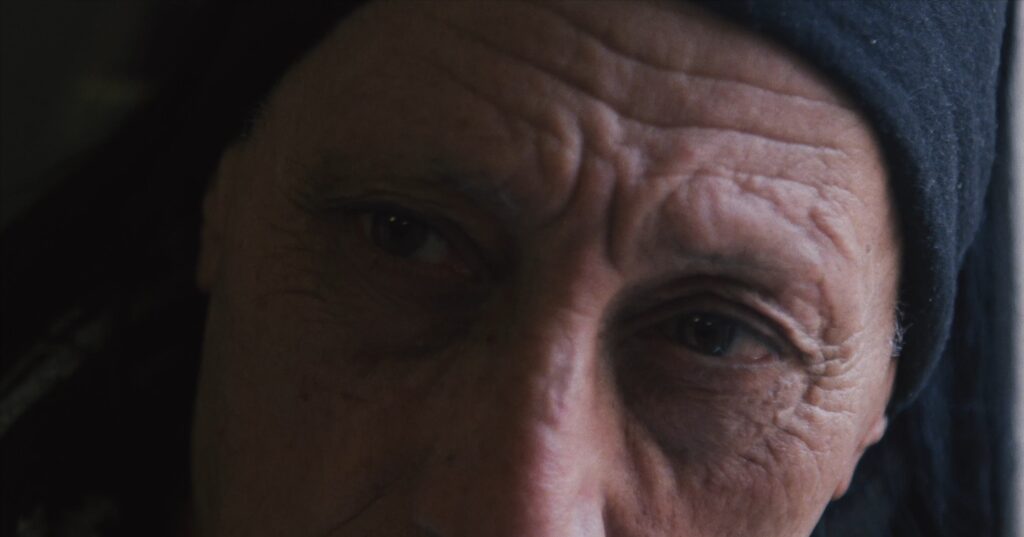
The Prison as a Neighborhood: Inside the Rebibbia Penitentiary Complex
Hyperlocal presents a short film directed by Alain Parroni, an intimate story created inside the Rebibbia Penitentiary Complex.
Through digital explorations of Rome’s suburban geography and the direct experiences and words of the inmates who collaborated with Hyperlocal, the film explores how this hidden neighborhood, its inhabitants, and their lives are perceived from within its walls. It is a story about those who are unseen, living in a world with different rules.
Directed by Alain Parroni
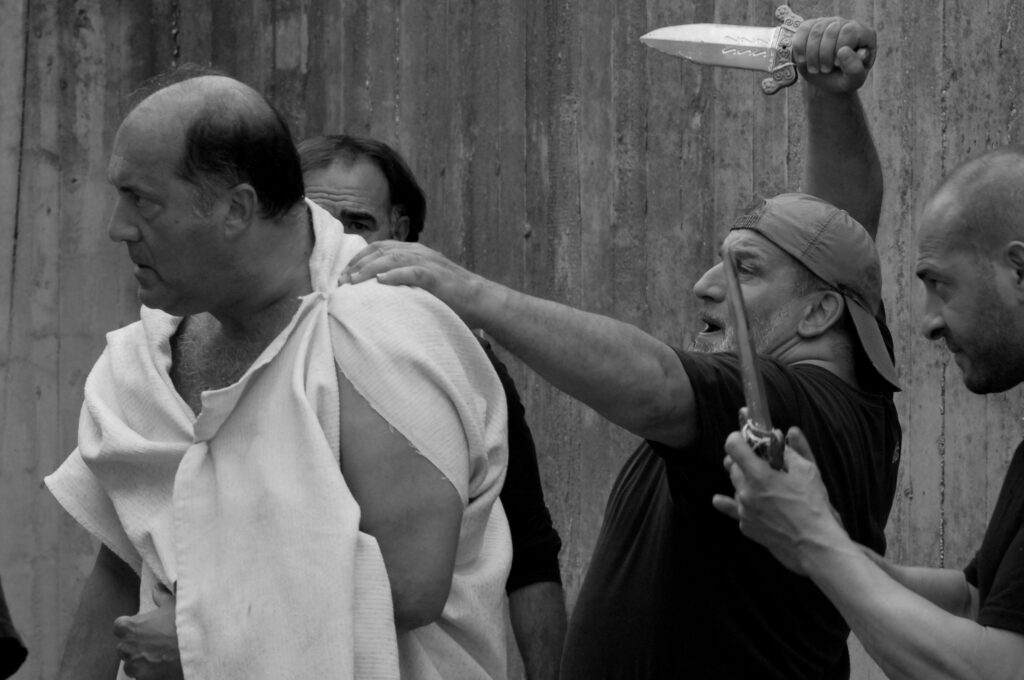
“It sounds like this Shakespeare lived in the streets of my city.”
“Caesar Must Die” is a 2012 movie by Taviani Brothers, inspired by the Shakespeare’s Julius Caesar. The directors had seen the Rebibbia ensemble at work and were convinced of its cinematic potential but needed a story with universal resonance. Conspiracy, betrayal, guilt, leadership, and the corruption of power—all central themes in Shakespeare’s tragedy—echoed the actors’ own lives and the paths that had led them to prison.
Written by Graziano Graziani
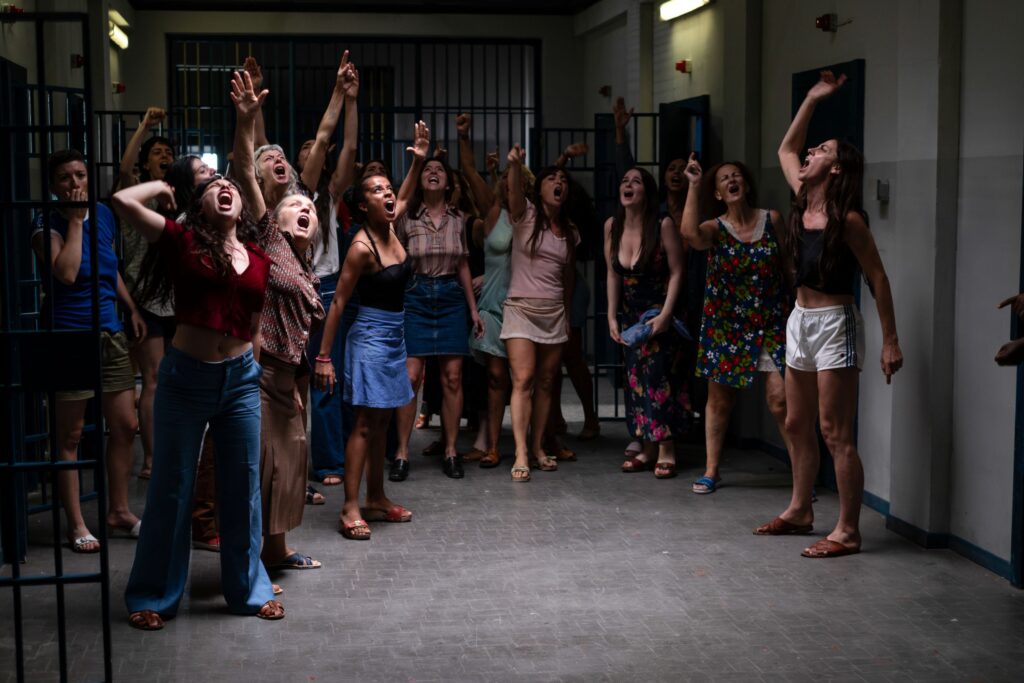
“You are you, I am me, and I don’t care what you did to end up in prison.”
The prison is a crucial passage for those who end up inside it. Fuori, the film by Mario Martone, shot in prison and based on Goliarda Sapienza’s novel The University of Rebibbia, portrays the spaces of Rebibbia as a labyrinth where fragmented space and disoriented senses contribute to “regressing you to childhood,” as Goliarda writes, and which can suddenly become a kind of home, strangely similar to the outside world.
Written by Alice Sagrati
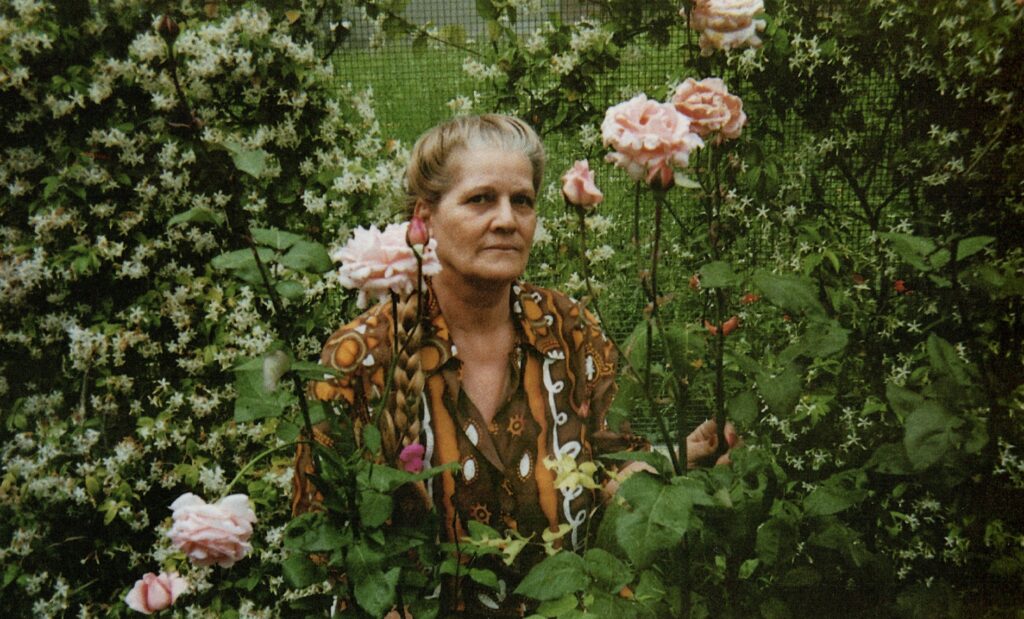
“If you don’t like your job, why do you do it?”
Among gardens and walls unfolds the tragic story of Germana Stefanini, a guard executed by three self-styled revolutionaries during a so-called “proletarian trial,” whose name was later given to the Female Section of Rebibbia prison.
Written by Nicolò Porcelluzzi
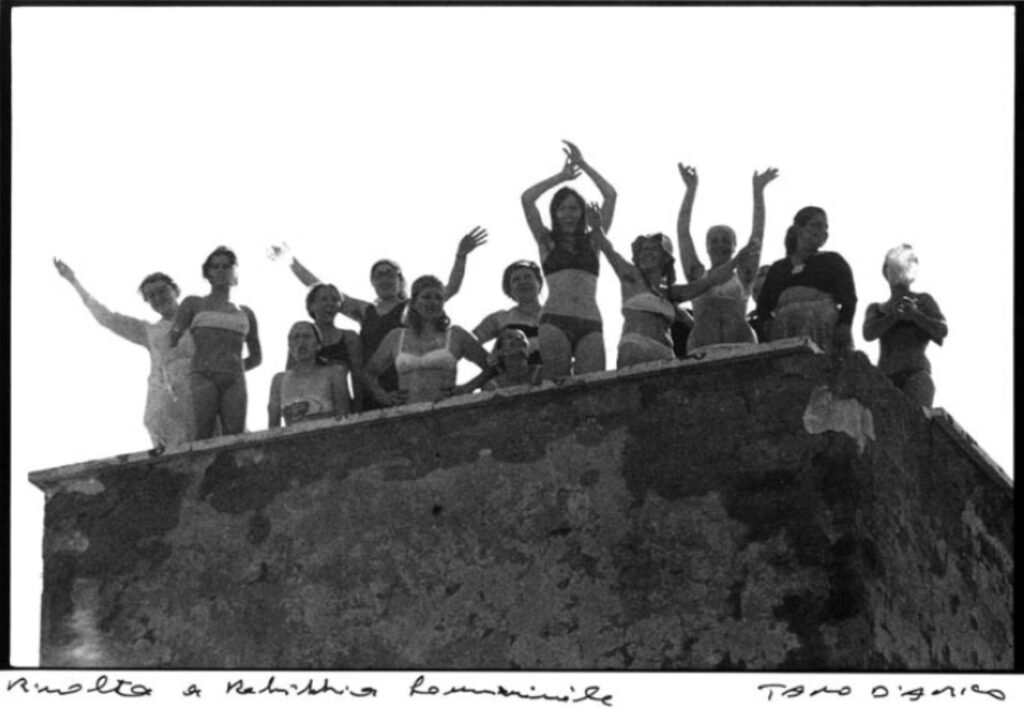
“In images, more than in words, we must look for the stories of the defeated.”
“Camera Oscura” was a photographic project by Tano D’Amico occurred in Rebibbia. One of the few that let the detainee shoot their own photos. It was a way to overturn photography’s usual role from an instrument of control and transform it into a space of shared freedom, and above all, a way to bridge, or at least narrow, the distance from the outside. As some participants wrote years later: “Since we do not wish anyone to have to come and visit us here, we prefer to reach you ourselves through our images.”
Written by Silvia Basile
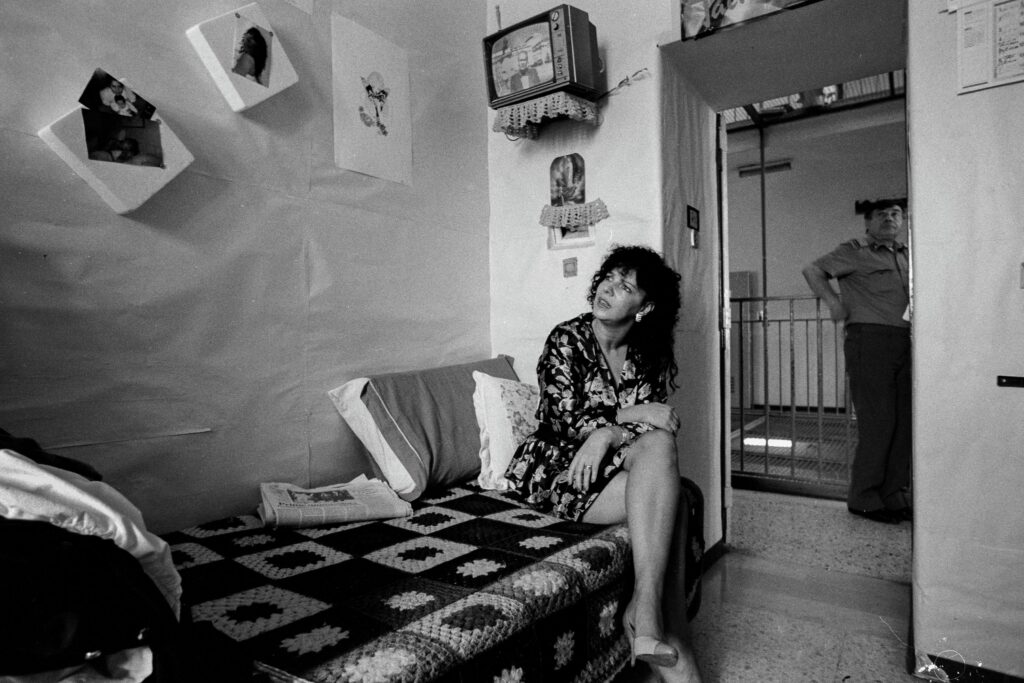
“No Flowers for the Brides.”
How does a wedding happen in prison? Isabella De Silvestro tells the story of Tiziana, a woman who attended two weddings, one as a guest and the other as the bride, during the 1980s, when they were all political prisoners in Rebibbia.
Written by Isabella De Silvestro
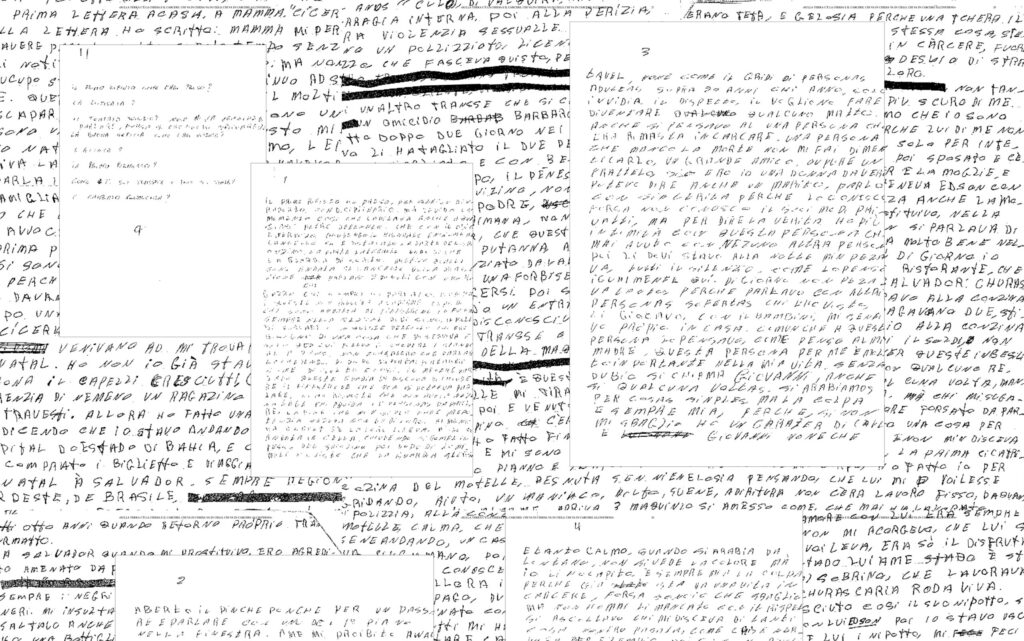
“On earth, there’s church and there’s prison. If you go to church, you go to heaven. If you go to prison, you go to hell.”
In early ’90s Rebibbia, three lives crossed: Princesa (Fernanda Farias de Albuquerque), a trans woman from Brazil; Giovanni, a Sardinian lifer; and Maurizio, ex-Brigate Rosse. Their secret letters became the novel Princesa, an act of liberation that lingers on her experiences of desire, sex, and self, while suggesting a historical passing from political struggle to identity struggle.
Written by Elisa Cuter
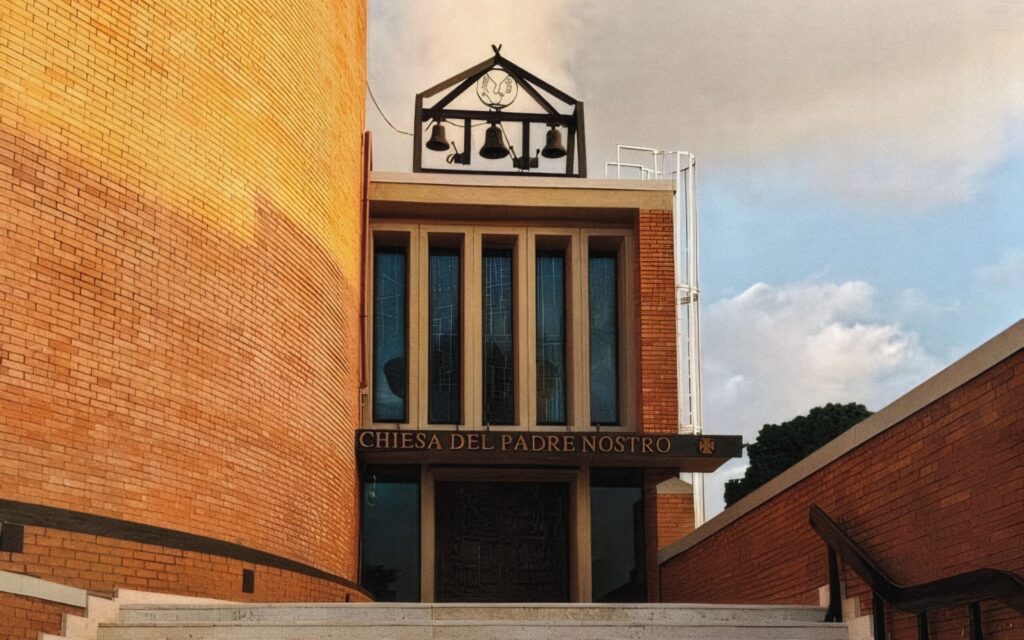
“I wanted the second Holy Door to be here, in a prison.”
Pope Francis died in prison. He entered Rebibbia, fell into a coma, and died. It gave meaning to his mission. For the first time in history, a pontiff opened a Holy Door inside a penitentiary. Francis himself said that on that occasion, for one day, Rebibbia became a basilica: “I opened the first Holy Door at Christmas in St Peter’s, but I wanted the second Holy Door to be here, in a prison. I wanted each of us here, inside and outside, to have the chance to fling open the doors of our hearts and understand that hope does not disappoint.”
Written by Christian Raimo and Giulio Pecci
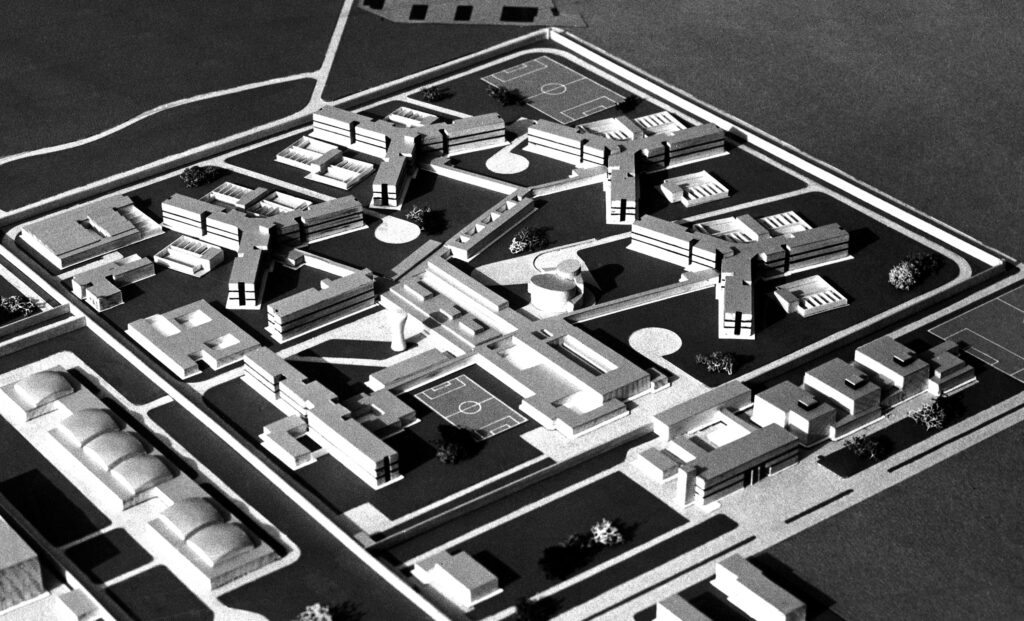
“In the end, the reward I expected in return for the wrong I had suffered was impossible.”
Sergio Lenci was the architect of the New Rebibbia Penitentiary Complex. A visionary modernist, attentive to social issues and to the living conditions of inmates, he became the victim of an attempted assassination by a group of Brigatisti in the 1970s. From that day and for the rest of his life, Sergio devoted himself to understanding the reasons behind the attack. The story of the new Rebibbia begins in this way: in armed struggle, in the internal conflict within the architectural instrument, and in reflection on the idea of forgiveness.
Written by Nicola Gerundino
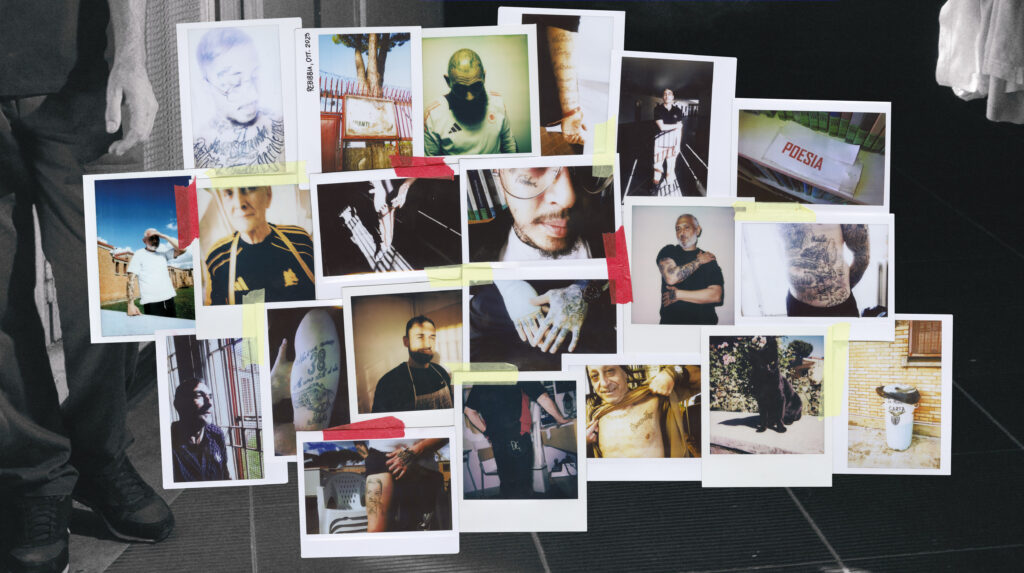
Inside Out
Check this excerpt: Prison is a country most people never come to know. You don’t set out for it; you end up there, often without quite realising how. No one chooses it, but who lives in it? These are the stories of Rebibbia. The stories of 17 people—a small group who resemble, however, the many who inhabit all these countries where you end up without ever wanting to.
Written by Isabella De Silvestro; Federica Delogu; Nicola Gerundino; Giulio Pecci.
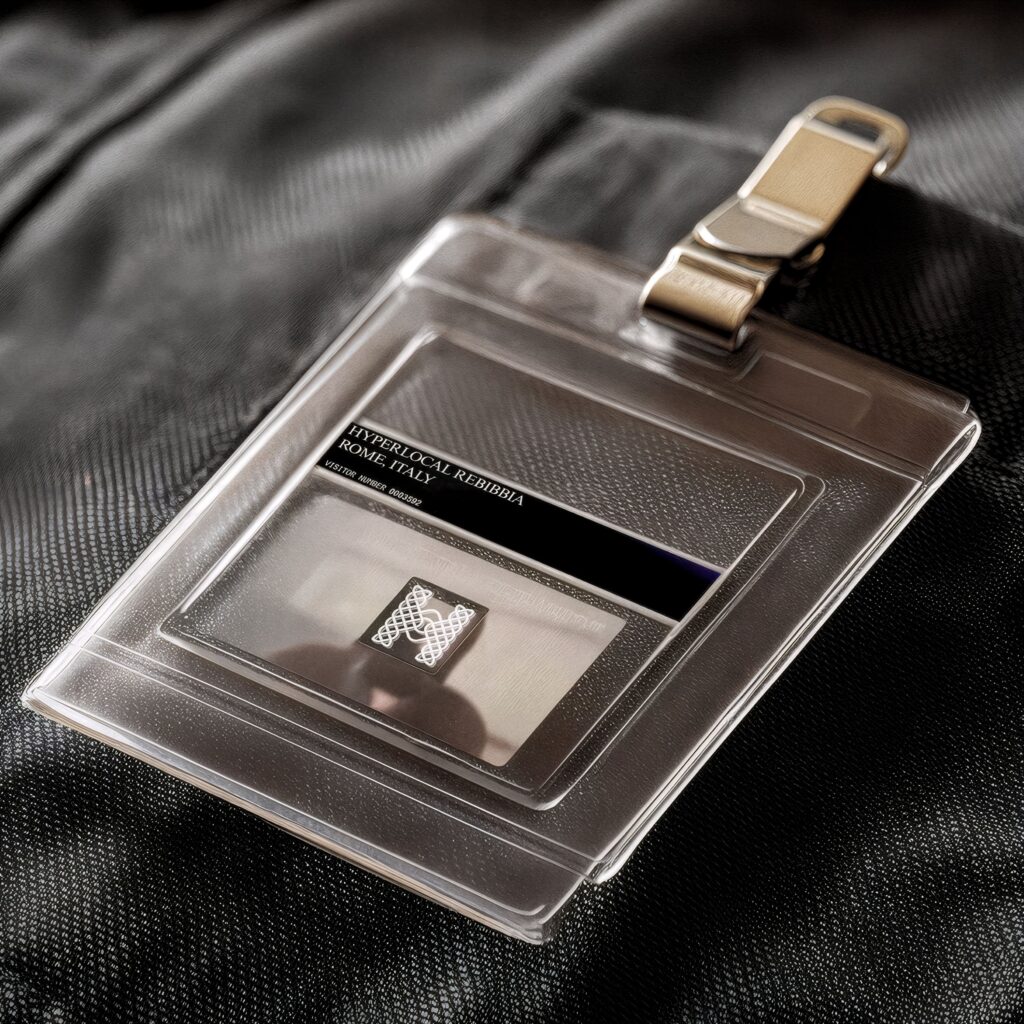
An Upside-Down World: Inside Rome’s Rebibbia Penitentiary Complex
Rebibbia is a “neighborhood that doesn’t exist”: a prison suspended between maps and walls, visibility and invisibility. Hyperlocal explores the shared ground between the district and its prison, two mirrored worlds that surface only in brief flashes of attention before returning to silence, revealing stories, voices, and reflections on justice, time, and coexistence—told directly by inmates and through original narratives that position Rebibbia Prison itself as a central subject.
Written by Nicola Gerundino

Globally and locally isolated: Ursynów and Mokotów as symbols of post-communist subculture in Southern Warsaw
In the early 1990s, as Poland emerged from Soviet influence and rebuilt after the fall of communism, a new subculture began to take shape in the urban blocks of working-class neighbourhoods. Known as blokersi or “kids from the block,” these youth, often from economically marginalised families, embraced hip-hop culture as a means to express their post-communist identity. They used graffiti, skateboarding, and rap music to critique the disillusionment of the era, with southern Warsaw districts like Mokotów and Ursynów becoming the epicentres of this cultural movement. It was here that Polish hip-hop was born, giving rise to influential crews like ZIP Skład, Molesta, and Hemp Gru, marking the start of a unique social and musical revolution in the country.
Written by Tommaso Monteanni
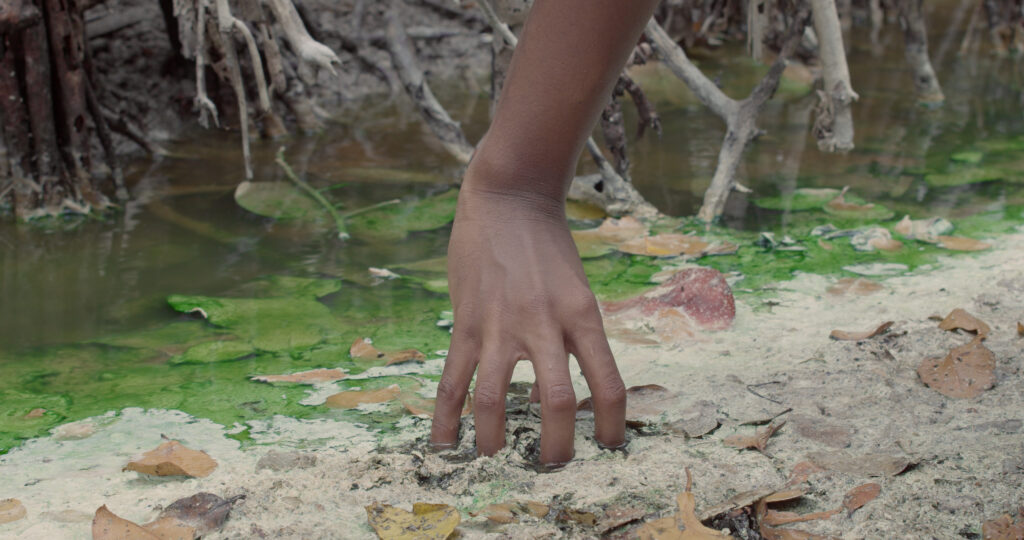
A Sea That Diffracts
Inextricably linked to Jamaican dancehall, Shatta emerged in the 2000s and 2010s in Volga-Plage, a neighbourhood of Fort-de-France. From the capital, it quickly spread across the island, then the archipelago, and more recently—and on a larger scale—to the métropole, the Martinican slang for mainland France.
Written by Simone Bertuzzi/Palm Wine
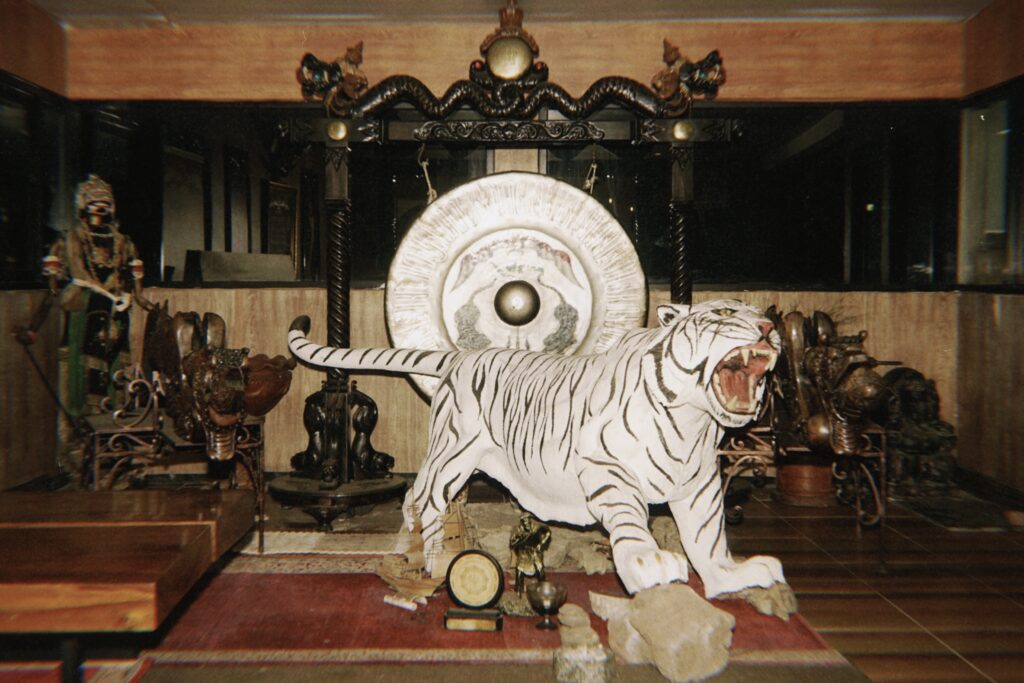
Hanging Out with a Purpose: Diving into Bandung’s Underground Music Scene
Bandung’s underground music scene isn’t just about the music—it’s a living, breathing culture built on community, resistance, and shared memory. The ritual of nongkrong is its lifeblood, a sacred space where history is passed down, alliances are forged, and creativity thrives against all odds.
Written by Teguh Permana (Tarawangsawelas)
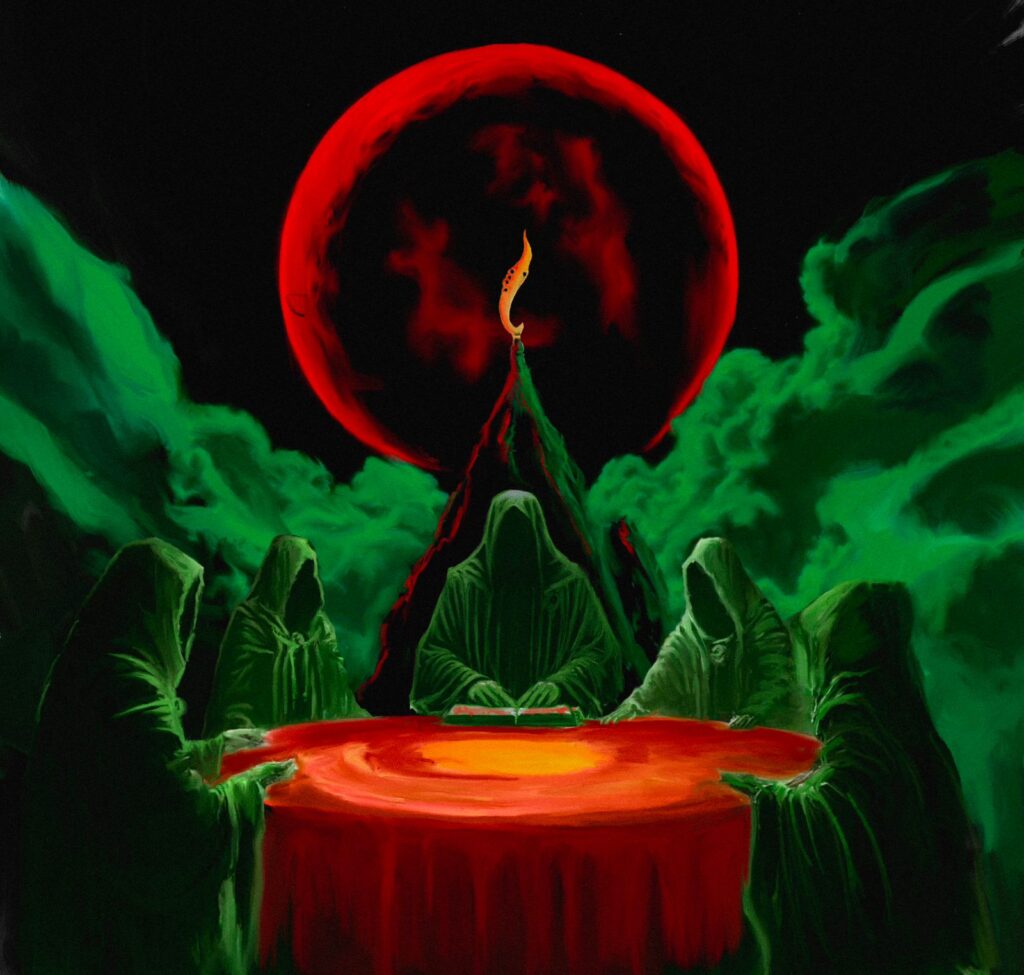
DIY Bandung and the Politics of Place
From street punks on Jalan Sumatera to death metalheads in Ujung Berung, the straight edge youth crew in neighbouring Sumedang, the anarchist crust punks of Rumah Pirata, and the emerging scene in Buahbatu featured in this issue, the history of the underground and its DIY practices reflects the narratives of local neighbourhood scenes, interlinking shifting underground styles, identities, values, and practices with the evolving urban landscapes of Bandung.
Written by Sean Martin-Iverson
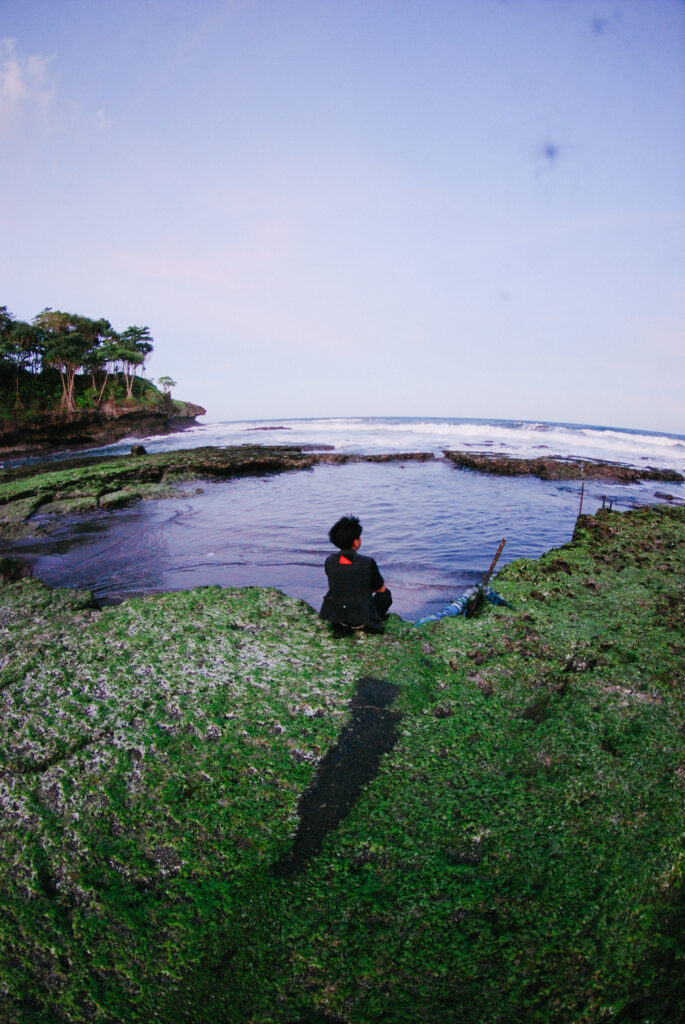
Pyrate Punx on the Beach: postcards from Libertad Fest
Libertad Fest is an annual punk music festival organised by the Bandung-based Pyrate Punx collective, coming to life every year through the assemblage of itinerant locations and various other collectives from around and outside the Indonesian archipelago.
Written by Luigi Monteanni
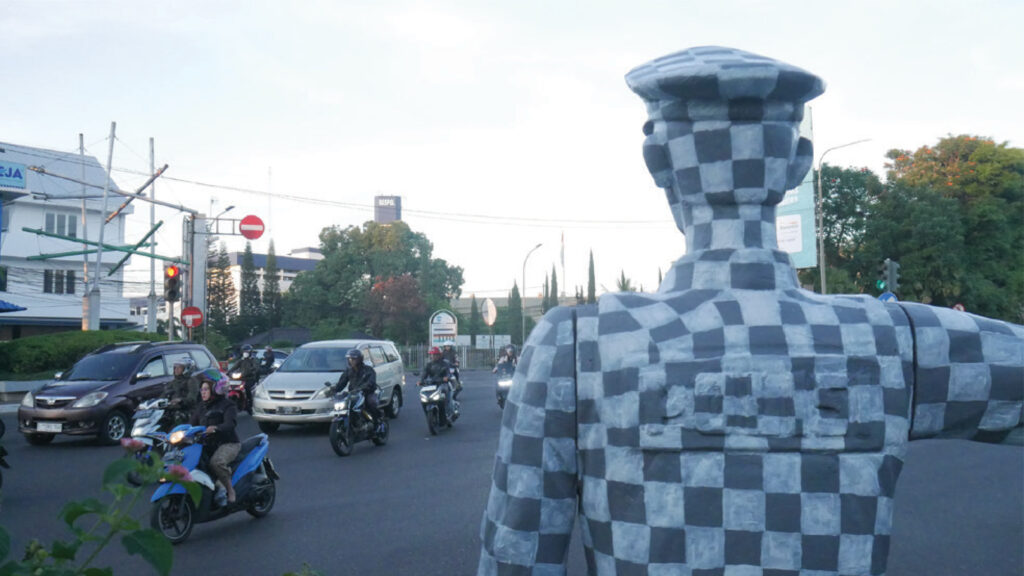
The Biggest Rip-off in Indonesia Police History
Studio Pancaroba turns a national crisis into an absurd monument to corruption.
Written by Studio Pancaroba
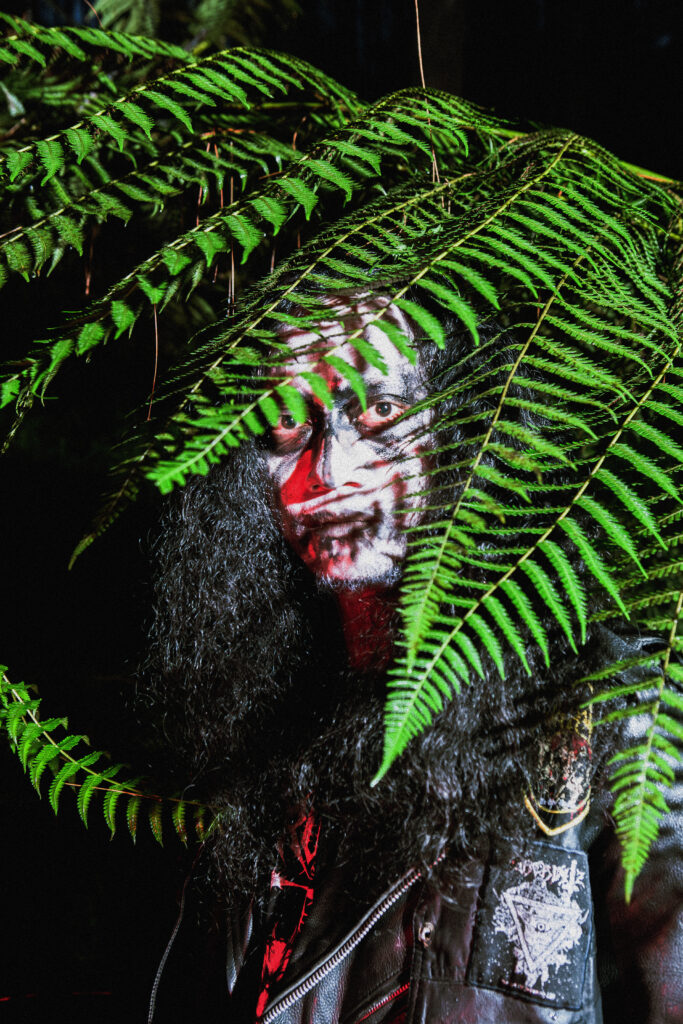
Farmers in Corpse Paint
From corpse-painted farmers to sonic cartographies of the countryside, West Java’s black metal scene reimagines agrarian life as radical resistance. Bands like Bvrtan, Pure Wrath, and Sufism parody, honor, and weaponize rural imagery to confront inequality, history, and power.
We have follow the vocal project Ensemble Tikoro, in a trip through Bandung’s countryside.
Written by Luigi Monteanni
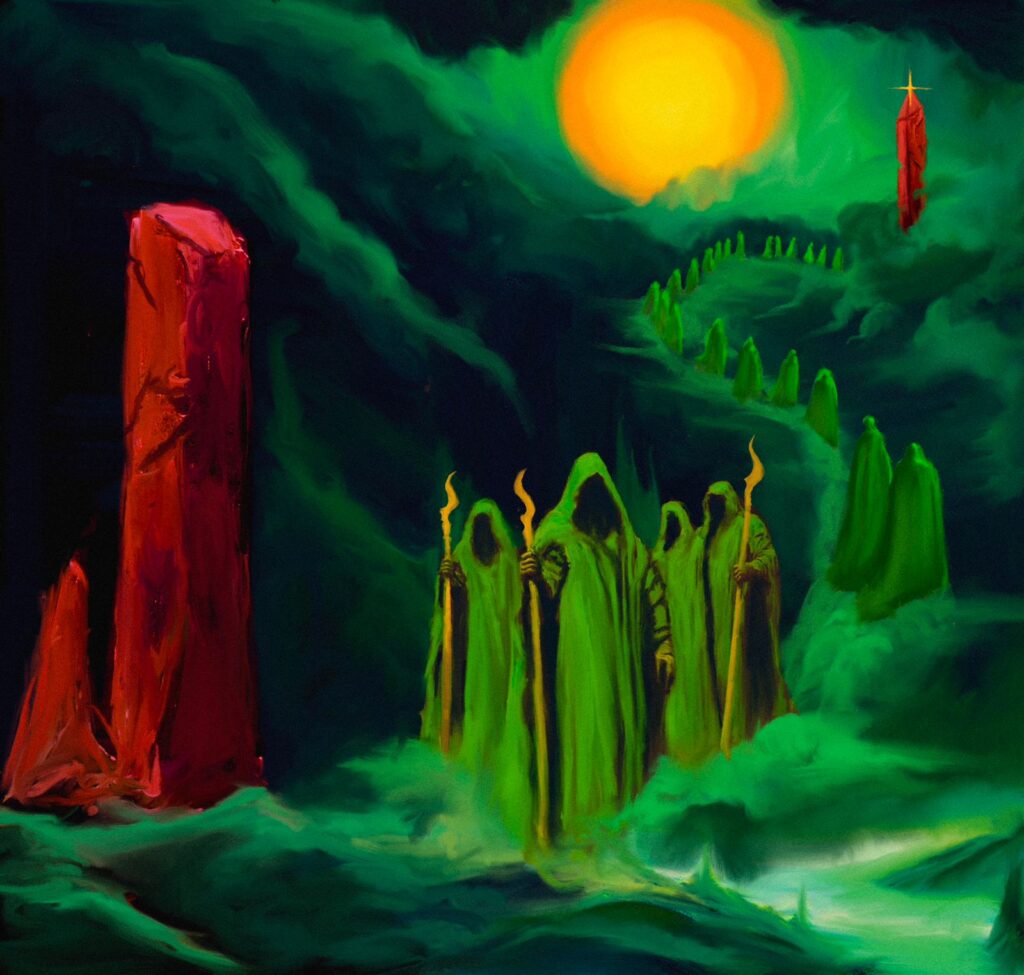
Kampungan: Reclaiming Indigeneity and Cosmopolitanism in Bandung’s Underground Scene
From early on, the meanings and effects of indigeneity and cosmopolitanism have been core themes of Indonesia’s underground scene, which has gradually gained strength both locally and globally in artistic and political spheres.
Written by Luigi Monteanni
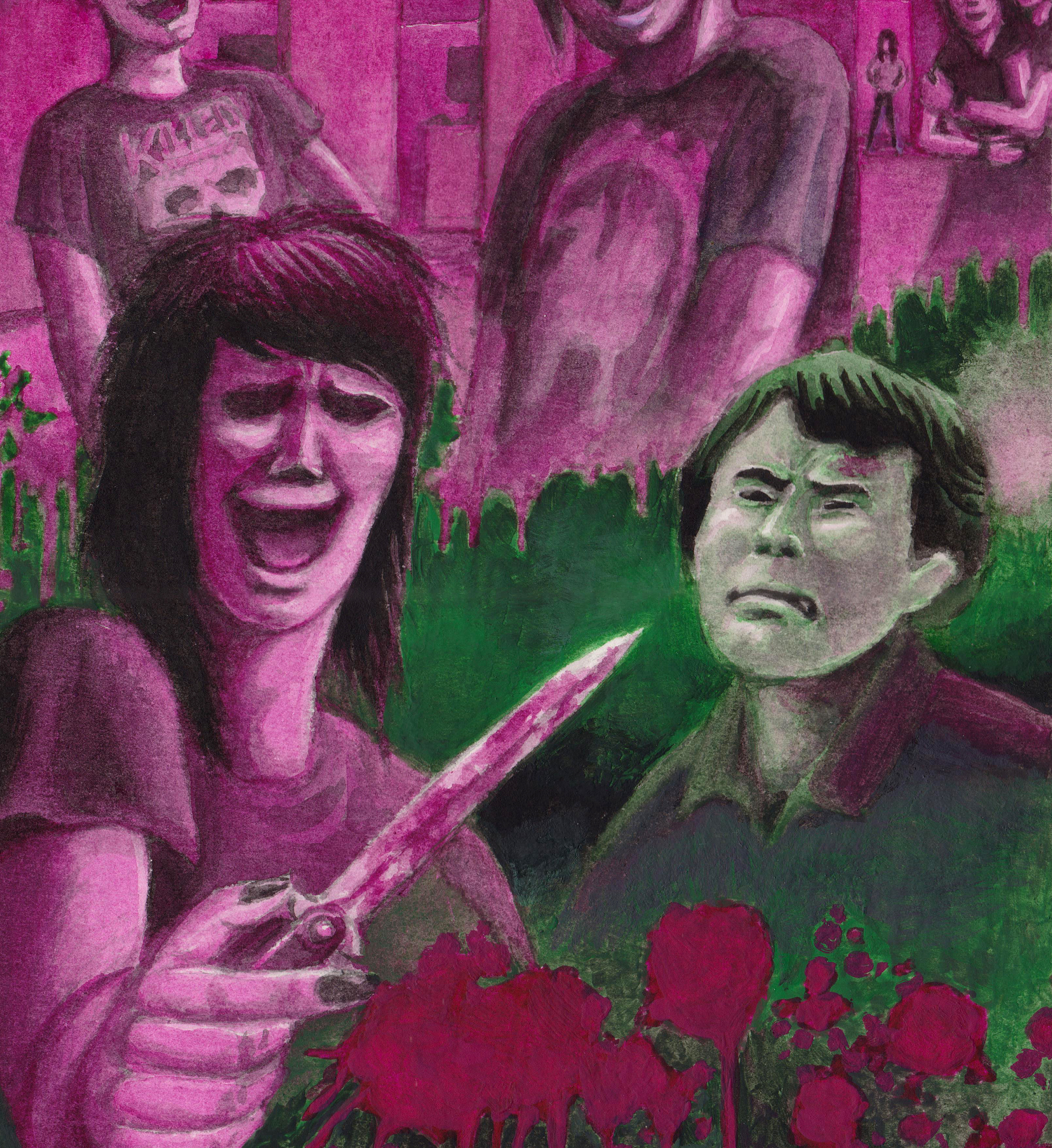
Killer Ape Theory
A speculative fiction by artist Riar Rizaldi, rooted in Bandung’s underground music history, imagines a city where gangs of preman (freeman, gangsters), devoted to punk, metal, emo, and hardcore, rule the neighborhoods on motorcycles.
Written by Riar Rizaldi